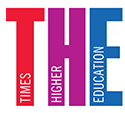As a new president takes the helm at Peking University (PKU), its liberal arts college is arguably on the firmest footing since its establishment.
From its humble beginnings in 2001 as a small, experimental programme within China’s leading institution, Yuanpei College today is, by many measures, a resounding success. It has grown into a fully-fledged liberal arts school with more than 1,200 students, drawing the cream of the crop from applicants to its parent institution.
“Yuanpei has become the most popular college in PKU. Every year we have the best students from the whole country – PKU and Tsinghua have best students, but we have the best of the best,” said Feiyu Sun, its associate dean.
But as the university enters a new era of leadership under Gong Qihuang, Yuanpei will again need to show its worth. With competition among Chinese graduates higher than ever before, convincing many people – even academics – of the value of its liberal arts model of teaching continues to be an uphill battle.
“In the past 20 years, most of the presidents of PKU were from the background of science and technology, so we needed to ‘earn’ our support from the administration. Some professors do understand that Yuanpei is important, but many do not, even today, even after 20 years,” said Professor Sun.
In China, where pupils go through years of rigorous exam preparation intended to place them in top universities to study narrowly defined professional fields, Yuanpei’s approach still seems radical.
Students there have the freedom to choose their classes – with no core requirements – and can graduate in between three and six years instead of the standard four. They don’t even need to declare a major by their second year.
By design, the college doesn’t have its own professors, a decision that still sometimes puts it in tension with the broader faculty at PKU, some of whom see Yuanpei students as lacking in commitment to a discipline and competing for limited resources with the students inside their own departments.
“This gave us a lot of challenges in the beginning because students and professors from other departments didn’t want students from Yuanpei,” Professor Sun said.
Since then, the students’ performance in their classes has helped shift the dial, convincing reluctant professors “that a student not picking any major in beginning and who could change major without any restriction could perform even better than those students who study professional knowledge from the beginning”, said Professor Sun.
He credited Yuanpei’s students’ drive, which stems from a true interest in the subjects they eventually settle on.
“In China many students come to university to study economics or business because it was their parents’ decision. Students study that major but don’t like it,” he said. “If Yuanpei students choose a major, they choose it by their own will…in Yuanpei, you truly love that major.”
Getting to this juncture, though, isn’t always easy. Unlike most university students, who pick a department and simply follow the curriculum, Yuanpei students must select their own courses – something most struggle to do.
“Students in Yuanpei are really good, passionate, ambitious [and] know what they’re doing, but some come to Yuanpei just because their studies were good in high school, not because they know what they want to pursue in university,” Professor Sun said.
Like its students, the college itself is still finding its way.
When Yuanpei began as a programme in 2001, there was no blueprint for what a Chinese liberal arts college would look like. The programme’s directors could not “just borrow the Harvard model” or the ancient Chinese model, noted Professor Sun.
“We needed to find a new Chinese model, combine China’s tradition, culture, history [with] modern education…we needed to use our imagination.”
This remains Yuanpei’s biggest challenge even today, Professor Sun said.
Recently, the school has shifted its focus to creating an environment in which students learn outside the classroom. Taken for granted in countries with long-established liberal arts traditions, the emphasis on socialising is still foreign in China, with students expected to buckle down and study during their university years – something that Yuanpei’s recently built residential college seeks to address.
“We wanted to put students together to give them a public space so they could hang out, talk to each other, develop their many hobbies. We want to explore a style of university life in China. I believe that very, very few professors in China consider this question,” said Professor Sun.
He is convinced that the liberal arts approach, whether in the classroom or the dormitory, pushes students to have “broader horizons”.
But for the more sceptical of his colleagues, any apparent benefits will need to translate into outcomes for Yuanpei’s alumni. As one mathematics professor recently told Professor Sun, the only thing that will win him over is cold, hard numbers – figures that won’t be apparent for years to come.
“If we want him to believe in the Yuanpei model, we need to convince him by those numbers of students who study maths in Yuanpei and then after 20 years become famous scientists.”

0 Comments